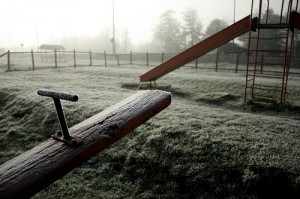 There are a few words that creep into our sentences, into the conversations we have in our hearts and minds each day. Those words tend to change and flex as we grow, as our vocabulary widens and we begin to understand the words we use.
There are a few words that creep into our sentences, into the conversations we have in our hearts and minds each day. Those words tend to change and flex as we grow, as our vocabulary widens and we begin to understand the words we use.
My seven year old tends to use ‘actually’ with a hand firmly placed on her hip these days. Im hoping that will soon be replaced by a word not sponsored by Nickelodeon.
I was reading by the pool yesterday. Highlighting the important words with my crayon as I’d left my highlighter 800 kilometres away on my cluttered desk. Hope in a time of global despair was the chapter that caught my interest on that lazy Saturday afternoon. Hope is a word that creeps into most peoples stories about now, then and beyond. We hope for good outcomes when we cook a meal, when we accept a job, when we get bad news about our health, when we live with sadness. Hoping for the fog to lift, for the light to shine and for the feeling that comes with hopefulness to carry us through. Strangely despite the over-use of the word there has never been much written about it – its like hope sits atop the seesaw of the local park with despair quietly waiting on the other end. My job as a mum has found me perched in the middle more often than not, trying to keep the kids balanced until they both grow to be similar heights and weights. My hopefulness and hopelessness oscillates when working with families yet I am always cautiously optimistic that people will find new ways to thrive.
The author explored hope through her life as a therapist but also as a woman living with cancer
‘hope can be a wish, an expectation of something desired. I hope I live the six months until clementines (the fruit in her neighbours yard) reappear. Last winter, unbeknownst to me, my partner froze a batch of clementines and we ate them like popsicles in July ‘you have lived to eat clementines again’ he said as we savoured the cold, sweet, orange sections and the moment’.
The key to hope, in all its functions, is that it exists in the minuscule and majuscule moments of life. Embracing hope serves as a tool to balance out the despair. Some of us tend to sway towards being indifferent to the feeling of hope – its a natural way to exist -whereas others tend to sit amongst the feelings of hopelessness looking for ways to search out a way to shuffle up and balance out the see-saw.
Both sensations – of hopefulness and hopelessness – are profound, they are part of our lived experiences.
Which side of the see-saw do you tend to exist on?